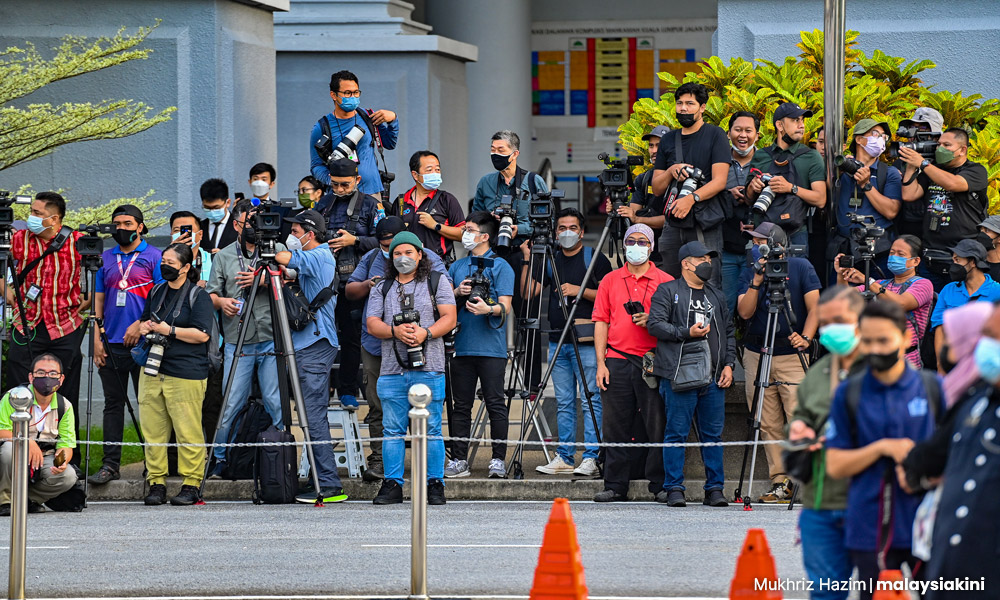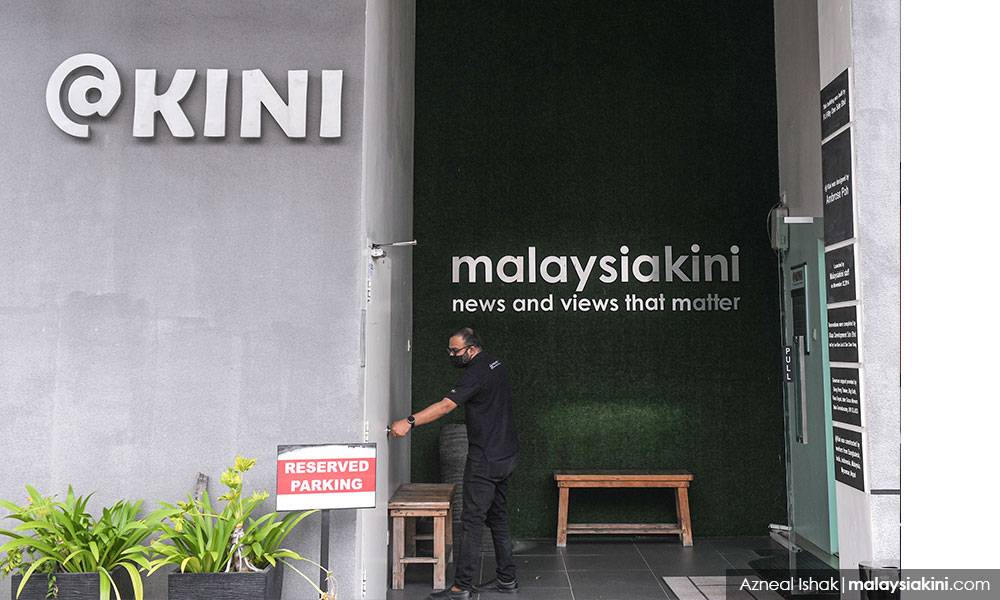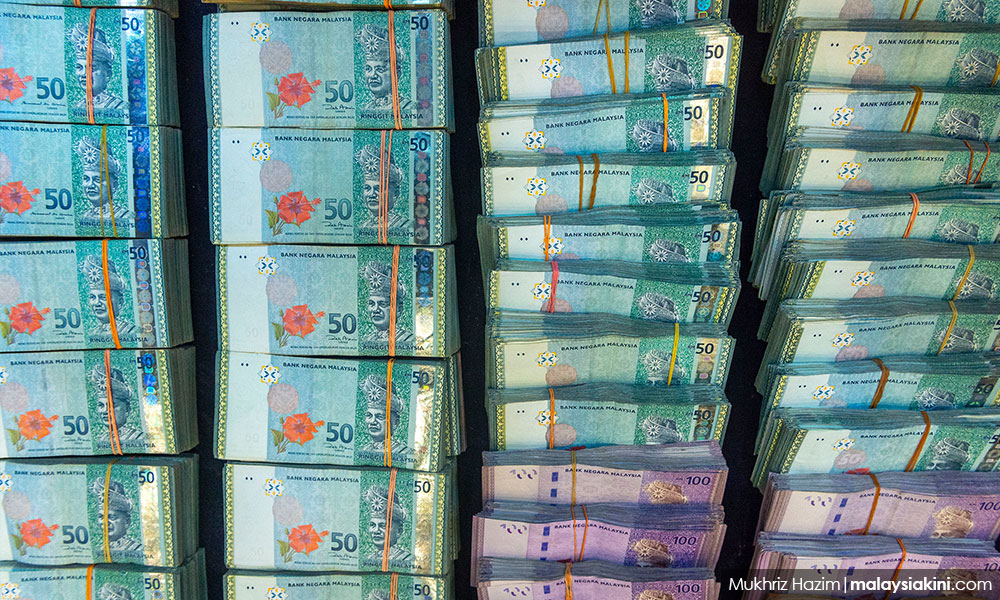COMMENT | The year was 1998. Anwar Ibrahim was just sacked from the second highest public office in the country, taking him into a 23-year detour before returning to Putrajaya at the head of the table.
Somewhere in a fourth-floor shop lot in Section 14 of Petaling Jaya, a news portal was starting out with a shoestring budget and a newsroom smaller than a Bungkus Kaw Kaw outlet.
The birth of Malaysiakini on Nov 20, 1999, was a pivotal moment in our history, with the portal taking on stories that many other media outlets were unwilling - or unable - to touch over the two decades that followed.
Unlike previous five-year milestones, there will be no celebratory mood at Malaysiakini’s 25th anniversary in November due to a restructuring exercise. An unknown number of hardworking reporters and editors will lose a job they love and a profession they thrive in.
My heart goes to the affected journalists who had to experience this anxiety all over again in an uncertain media landscape. It’s easy to forget that behind the news, there are human beings who report it every day, and they, too, endure lives like the rest of us: struggling with livelihood, losing a loved one, and carrying on living.
Changing media landscape
It’s not just Malaysiakini. The media industry is undergoing a catastrophic decay that should worry anyone who believes a free and independent media is necessary for a healthy democracy.

The Malaysian Insight was suspended early this year due to a lack of funds, the staff at The Vibes were reportedly not paid their salaries for months, Utusan and Kosmo were sold off, and Chinese media reportedly plans to lay off up to 44 percent of their workforce over the next few years.
Malaysiakini has carried out excellent reporting and investigations. Remember the allegations regarding the holiday of chief justice Eusoff Chin and prominent lawyer VK Lingam? From the “Correct, Correct, Correct” scandal to 1MDB red flags and all the major rallies, Malaysiakini was there to report “the news and views that matter”.
As written by academic Janet Steele in the book “Malaysiakini and the Power of Independent Media in Malaysia”, Malaysiakini is one of our most important media and cultural institutions. It is our Tempo and Rappler.
But excellence is not the same virtue as profit. Journalism today is not rewarded by its government-shaking exposé, but increasingly by the clicks and ringgit it generates in return.
Just ask Buzzfeed News, which won a Pulitzer Prize for its groundbreaking investigative journalism and was shut down by its owner two years later because the newsroom was “making losses.”
No more Thanos
The main threat to independent media today is no longer authoritarian dictators. Of course, authoritarian laws still linger! A fellow columnist of Malaysiakini got probed over his piece on Universiti Teknologi Mara and apartheid, and police summoned three Malaysiakini journalists and asked them to reveal their sources over an article on Bukit Aman’s alleged reshuffling.
But for now, Thanos is gone. There is no “big villain” dictator that instructs newsrooms to be shut down or reporters taken away in the fashion of Ops Lalang (37th anniversary this month). A naïve assumption would be that in the absence of explicit repression, independent media will thrive.

Not really. Today’s challenges are different, but not any less harmful. Here are three of them: firstly, disinformation. It is so widespread that anti-democracy actors are no longer suppressing the truth, but focusing their efforts on proliferating the market with half-truths and misinformation to leave the readers confused.
Secondly, we have the aggregators. It is an old threat disguised as a new one because, in the old days, we just called it “cetak rompak” (stealing content).
Basically, these “news” websites take content that is produced by actual journalists and reproduce it on their website with a clickbait title.
Thirdly, and perhaps this is the new big villain, Big Tech. Social media platforms take away traffic and revenue from news portals. For an online news portal like Malaysiakini, it is a significant deprivation and redirection of readers and revenue.
Big Tech companies like Google, Meta and TikTok do not pay much tax, if at all, but gain millions of ringgit in ad revenue much to the detriment of local newsrooms and newspapers.
Things have gotten so bad that a bill in California is being drafted to require Big Tech companies to pay news agencies for using their content. The bill would share advertising revenue with California media companies, with at least 70 percent going towards journalists’ salaries.
Australia and New Zealand, on the other hand, are formulating regulatory laws to compel these Big Tech companies to behave more responsibly.
Are locals willing to fund democracy?
While Malaysiakini has stated they are not at risk of closing down (it has survived multiple raids and shutting down of different units and subsidiaries over the years), threats to its sustainability must be a major concern for its subscribers and supporters.
Media ownership in Malaysia is concentrated in the hands of a few rich individuals. Just half a dozen of these men can call for a meeting and decide among themselves to call off exclusive reporting or shut down entire newsrooms.

These high-level executives and millionaire owners are unlikely to care about democracy, protests, illegal logging, deforestation, and civil liberties.
When we have a monopoly of media ownership, vested interests decide what information reaches the public. What the Malaysian public consumes is and will be decided by monopolies or algorithms.
Malaysiakini has been the pioneer in having a membership subscription and a readers-supported publication. Supporters literally housed Malaysiakini’s team by “Buying a Brick” for the new office. Others look up to the news portal as an inspiration that they too can start a publication or initiative supported by locals.
Malaysiakini has always been a platform that belongs to the people and challenges the status quo. By subscribing or donating, we are not just supporting a news organisation - we are investing in the future of Malaysian democracy.
Fortunately in this country, we don’t have to die for democracy – we just have to be willing to pay for it. Independent journalism isn’t free. As the saying goes, if you get something for free, you are the product!
Investigative reporting takes time, resources, and, most importantly, the courage to stand up to powerful entities. Every subscription and every word of support helps keep Malaysiakini sustainable, ensuring that it can continue to take risks and pursue stories that make a difference.
‘Foreign funding’
Like many civil society organisations, Malaysiakini also applies for international grants and this has oft been misconstrued as receiving “foreign funding.”
Right-wing activists and pundits like to attack “liberal” NGOs and media for receiving “foreign funding”, but where is their outrage when the former prime minister and the president of a Malay political party said he received billions of political donations from a foreign government/monarch?

Their hypocrisy is not the point. The point is international funding is not a contentious issue and indeed has been the norm – the establishment of more than one public university is made possible by overseas funding from either international organisations or foreign governments.
However, dependency on grants is an uncertain and fluctuating gamble. As we in the NGO circles like to call it, “kais pagi makan pagi” (income that is only enough to live on). In the long run, support from local readers, supporters, and organisations is the decisive factor.
If someone is reluctant to donate or subscribe, consider these words from Steven Gan: “Those who don’t believe that Malaysia should be an inclusive society, those who don’t believe that we should take care of our environment, those who don’t believe that we should respect human rights…[by not countering] we allow them to take over the narrative [and] let them dominate our national conversation.”
If someone is reluctant to renew their subscription because they are upset with the comments section becoming more moderated, remember that the Federal Court penalised Malaysiakini with a RM500,000 fine because of readers’ comments.
It is not Malaysiakini’s decision that a court precedence has been set and must be complied with. We have to redirect our dissatisfaction to the root cause.
Greater good
Malaysia’s democratic progress since the Reformasi era is a story intertwined with Malaysiakini’s journey. Despite disagreeing with some of their editorial decisions (such as once platforming the president of a far-right Islamist organisation by giving him a column), I still think supporting Malaysiakini today is the right decision for the greater good.
The benefits simply outweigh the negatives to ensure Malaysia remains a country where truth has a voice, where power is held accountable, and where the people remain informed and engaged. It’s time to stand up for independent media, just as Malaysiakini has stood with us all these years.
The year is 2024. Anwar is prime minister at last, and 23 months into his premiership. Malaysiakini is still reporting the news and views that matter, while also figuring out how to feed the humans that write, edit, and publish.
Will Malaysians support them for another 25 years of independent reporting? Will we play a small part in supporting our journalists? Will you?
OOI KOK HIN is a political sociologist who dabbles in civil society.
The views expressed here are those of the author/contributor and do not necessarily represent the views of Malaysiakini.

